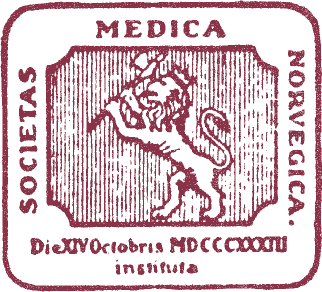Insights and implications
Michael 2006;3:5–6.
Dear reader,
The objective of this first issue of Michael in 2006 is to shed light on how medical knowledge can be adopted and implemented in health care and society, and how this process may take unintended directions.
There are two main articles, both originally presented as papers at the international conference «Health between the private and the public – shifting approaches» in Oslo in 2003* See the book of abstracts: Kvisvik M, Larsen Ø (eds.). Health between the private and the public – shifting approaches. Oslo: Det norske medicinske Selskab, 2003, and Michael #2, 2004.. Both of them touch on side effects and consequences when medical insight is presented and perused for political purposes.
Eugenics was an upcoming science in the first decades of the 20th century. Fangerau* Fangerau H. Human reproduction and eugenics as a public health issue: The contemporary reception of a German standard textbook on racial hygiene 1921-1941. Michael 2006;3:7–23. has studied how a medical textbook in this discipline was met by its readership and became a political tool – the alleged scientific background for harsh racial politics.
The introduction of a nutritional policy in Canada at the same time, as described by Ostry and his collaborators* Ostry A, Dubois L, Nathoo T. The development of nutrition policy in Canada in the 1920’s. Michael 2006;3:28–46., raises a series of questions of lasting interest and relevance, for example how strong should medical evidence be before large scale public health campaigns built on available knowledge are justified? And how to deal with the interplay between medicine, health and commercial considerations when different interests are at stake?
In her book review, Alvik* Alvik A. European social protection – systems in perspective. (Book review). Michael 2006;3:47–8. looks into the recent work by Paqui* Paqui L. European social protection – systems in perspective. Compostela Group, 2004., where different medical and social systems are compared. Obviously, it is an issue for discussion how far social and health care should be considered as an entity or separately, a point which may have important bearings for how sociological and medical insights can be brought into real life in the set-up of a society.
For public health sciences and for medical history, studies of how medical knowledge really functions simply are part of their raison d’être.
professor
Institute of general practice and community health
University of Oslo
N-0318 Oslo, Norway
oivind.larsen@medisin.uio.no
